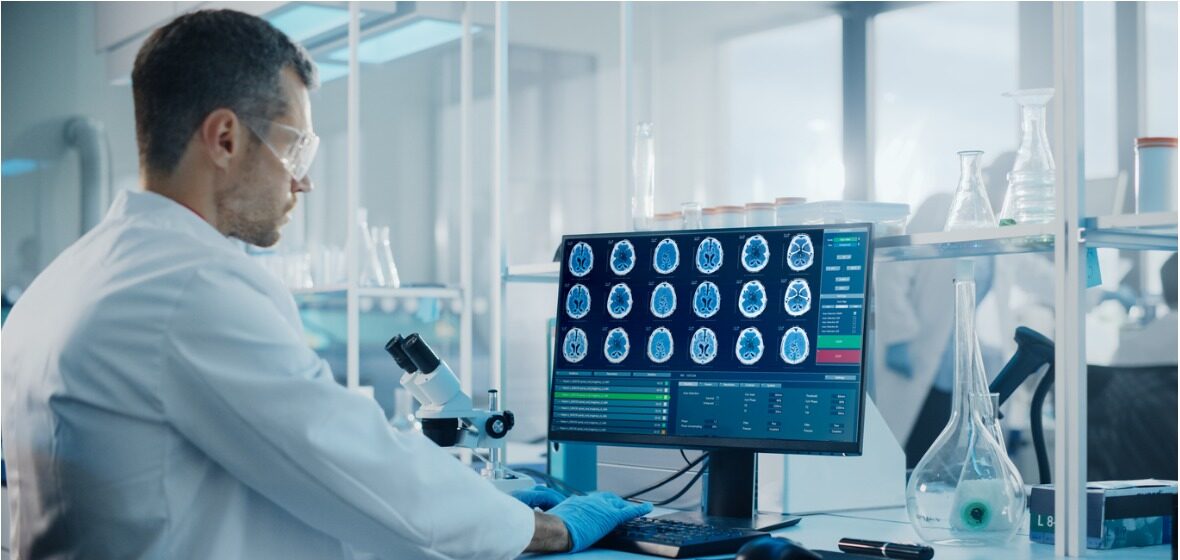Elon Musk recently announced that his neurotechnology company Neuralink will commence human trials within six months. Synchron, a brain-computer interface company founded by researchers at the University of Melbourne, has already been conducting human trials in the United States since July 2022.
Dr Allan McCay, an Academic Fellow at the Sydney Law School and Deputy Director of the Sydney Institute of Criminology, and also the author of the Law Society of England and Wales report Neurotechnology, law and the legal profession, said that Synchron is further down the path to regulatory approval than its better known rival.
“Australia has a history of neurotechnology,” said McCay.
“It’s got cochlear implants, Synchron, Epiminder and EMOTIV,” he said.
“It might be of interest to Australian lawyers that Australian companies could be potential clients and there’s a bit of an expertise in neurotechnology here.”
Epiminder uses neurotechnology to assist patients with epilepsy while EMOTIV is a non-therapeutic neurotech company that uses headsets to monitor attention and accelerate brain research.
McCay explained that neurotech start-up companies will require lawyers to advise them on how to obtain approval for their devices from the Therapeutic Goods Administration (TGA) in Australia and the Food and Drug Administration (FDA) in America.
“In the case of acquisitions, let’s say somebody wants to buy one of the companies in this field, it would be useful for lawyers to know something about neurotech to understand the business they are acting for,” said McCay.
McCay considered some of the legal issues that may emerge if people commit offences by way of brain computer interface.
“Let’s say I act through a brain computer interface and instead of using my muscle system, I by way of mental action control a drone and fly it into a person,” said McCay.
“That’s not science fiction, it’s something that is technically possible now,” he said
“The question is, what bit of conduct does the prosecution have to prove beyond reasonable doubt? The way I’ve controlled the drone is by way of mental act.
“That’s weird for criminal law as usually we’ve got the guilty mind and the actus reus is bodily. There’s something non-standard about a mental act becoming the thing that the prosecution has to prove beyond reasonable doubt as constituting the actus reus.”
Equally, if a device malfunctions and doesn’t do what the person intends, there might be a question about how that fits into existing legal defences.
“Once neurotechnology becomes more widespread and is integrated into people’s lives, more legal issues will start to emerge,” said McCay.
Once neurotechnology becomes more widespread and is integrated into people’s lives, more legal issues will start to emerge.
Dr Allan McCay, Deputy Director of the Sydney Institute of Criminology
McCay envisaged that neurotechnology may affect sentencing in the future. He gives the example of someone with schizophrenia: if that person commits an offence, rather than putting them in jail, they may be given a brain implant to monitor neural activities and electrically stimulated to prevent hallucinations. The device operates to reduce the risk of reoffending by reducing symptoms and if technical advances make this possible it might be something the defence put to the court to avoid jail time.
“You’re already allowed to impose electronic monitoring, so it is not inconceivable that one day a court could impose brain monitoring and make it a condition of an Intensive Correction Order,” said McCay.
Ethical issues may arise such as autonomy, personal identity, and risk of hacking. Hacking into someone’s data is a current hot topic, McCay said. “What if people could hack into someone’s neural device and get intimate information about the operation of their brain or worse, electrically stimulate it?”
“There’s something qualitatively different from hacking into someone’s banking details and hacking into someone’s brain,” he said.
“As a result, some scholars say there needs to be new hacking offences.”
McCay urged lawyers to think about neurotechnology because there is substantial money being invested in it. Gina Rinehart invested in Omniscient Neurotechnology, Facebook (now META) acquired CTRL-labs some time ago, Elon Musk created Neuralink and Bill Gates and Jeff Bezos recently invested $212 million in Synchron.
“These people are investing in it which suggests it’s going to be more widespread and in a timeframe that’s of interest to them,” he said.
Another ethical issue that comes up is whether neurotechnology should be used for enhancement. Curing epilepsy, dementia or depression is therapy however improving attention and memory beyond the normal range may lead to a digital divide.
“It could lead to a kind of arms race,” said McCay.
“You end up with this situation where you have people that are super workers that can pay attention for longer and remember things more easily while others can’t.”
Despite the ethical issues and legal complications going forward, neurotechnology offers a positive solution for many people.
“If someone’s got locked in syndrome or drug resistant epilepsy or dementia, they urgently need some kind of device that will help them to interact with the world again.
“It’s important not to forget that there’s massive, important ethical upsides to neurotech.”




